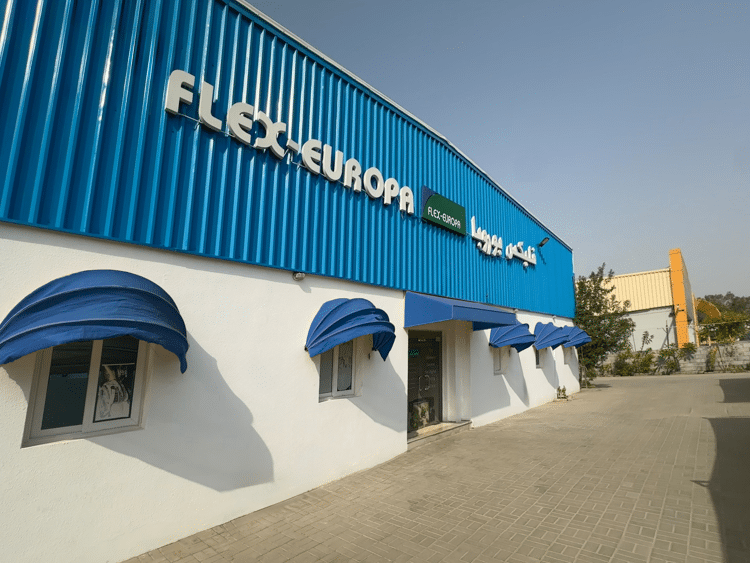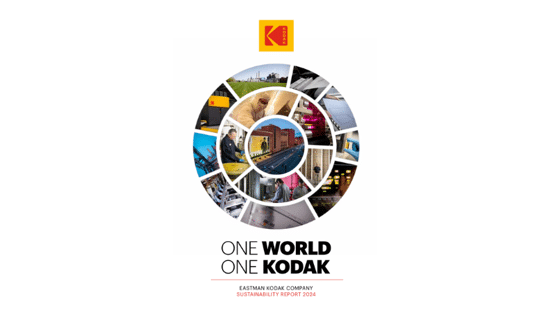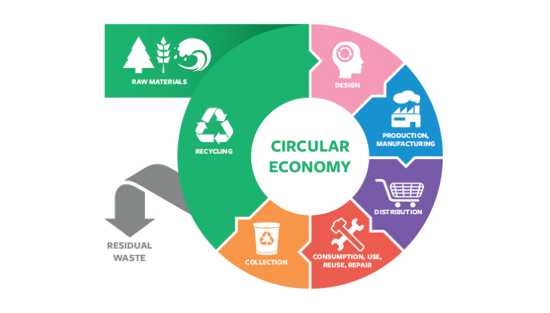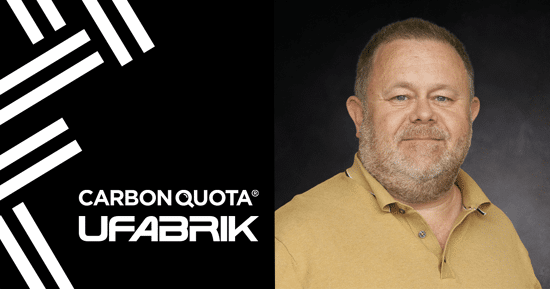Flex-Europa - a sustainable future for the digital printing industry

Rashed Abdeljalil, Business Development Manager at Flex-Europa discusses how the business is exploring innovativer ways to lower their ecological footprint and encourage their clients to do the same. The business uses eco-friendly inks, UV printing and recylcable substrates and uses digital label printers.
At Flex-Europa, our motto, *"Conformance to requirement,"* extends to our environmental responsibilities. We are continually exploring innovative ways to reduce our ecological footprint and help our clients do the same. By choosing our sustainable printing solutions, you are making a positive impact on the environment and supporting a more sustainable future for the digital printing industry.
Why Does Sustainability Matter?
Sustainability is becoming essential. Around the world, consumers and businesses are demanding greener practices to reduce waste and protect natural resources. Industries that adopt eco-friendly solutions build stronger brands, save costs in the long run, and meet growing environmental regulations.
The digital printing industry, in particular, has a unique opportunity to make a difference. By shifting to energy-efficient technologies and using recyclable materials, companies can reduce their impact on the planet while still delivering high-quality results.
Our solutions, including eco-friendly inks, recyclable substrates, UV printers, Eco-Solvent printers, and advanced digital label printers are designed to help businesses meet their sustainability goals. Whether it’s reducing waste, adopting energy-efficient technologies, or integrating recyclable materials, our team provides expert guidance to help clients transition toward a greener future.
Driving Change Through Sustainable Practices
The shift toward greener alternatives in digital printing involves a combination of cutting-edge technology and smarter materials. This includes:
- Eco-Friendly Inks
- Energy Efficiency with UV Printing
- Recyclable and Sustainable Substrates
- Digital Label Printers
Our digital label printers, such as the Epson ColorWorks CW-C8000, are designed to reduce waste. They enable on-demand printing, so businesses only produce the number of labels they need. These printers also support eco-friendly materials, making them a smart choice for industries like cosmetics, food, and retail, where sustainable packaging is a growing priority.
By choosing our sustainable printing solutions, our clients are not only making a positive impact on the environment but also contributing to the transformation of the digital printing industry.
Overcoming Challenges in Sustainable Printing
While the benefits of sustainable printing are clear, the transition comes with its challenges. One primary barrier is the perceived higher cost of eco-friendly materials and technologies. However, innovations in the industry are gradually closing this gap. Businesses are beginning to recognize that the long-term benefits—such as reduced operational costs and enhanced brand reputation—far outweigh the initial investment.
Flex-Europa is committed to supporting clients through this transition by offering cost-effective solutions and expert guidance. Our goal is to make sustainability accessible and practical for businesses of all sizes.
Join Flex-Europa at FESPA Middle East 2025
We will be showcasing our expertise at FESPA Middle East from 20 - 22 January 2025, at the Dubai World Trade Centre, Stand K10. This premier event is the perfect platform to explore the latest trends and connect with industry leaders. Visit us to learn more about how we’re driving sustainability in the digital printing industry and discover how your business can benefit from eco-friendly practices.
Topics
Recent news

Kodak's 2024 Sustainability Report: A Commitment to a Greener Future
Kodak's 2024 Sustainability Report, "One World, One Kodak," demonstrates a strong commitment to environmental and social responsibility. The report highlights impressive reductions in greenhouse gas emissions (56%) and water withdrawal (31%) and aims for zero waste by 2025. Notably, Kodak is pioneering double materiality assessment in the printing industry, aligning sustainability with financial reporting, and showcasing its products' environmental benefits.

How can printers lower costs on energy usage?
Clare Taylor outlines simple steps for businesses to achieve energy sustainability, focusing on cost savings and staff comfort. It emphasises starting with measuring energy consumption to identify key areas for improvement. Subsequent steps involve managing energy use through behavioral changes and low-cost interventions, like optimizing cooling settings and ensuring equipment is switched off when not needed.

The European Union's circular economy plan
Printing companies must understand the EU's Circular Economy Action Plan (CEAP), part of the European Green Deal. These initiatives drive sustainability, impacting businesses globally, even if not EU-based, through customer requirements. Printers need to be aware of reporting and sustainability expectations to manage risks and retain clients.

A revised look at sustainability in wide format print
Sustainability is crucial for wide-format print, moving beyond marketing to an imperative driven by brands and regulations. Common "eco" claims often mask complexities; true sustainability demands carbon reduction as a core principle. Life Cycle Assessment (LCA) offers data-driven insights for genuine environmental improvement, as demonstrated by UFABRIK's transparent approach.